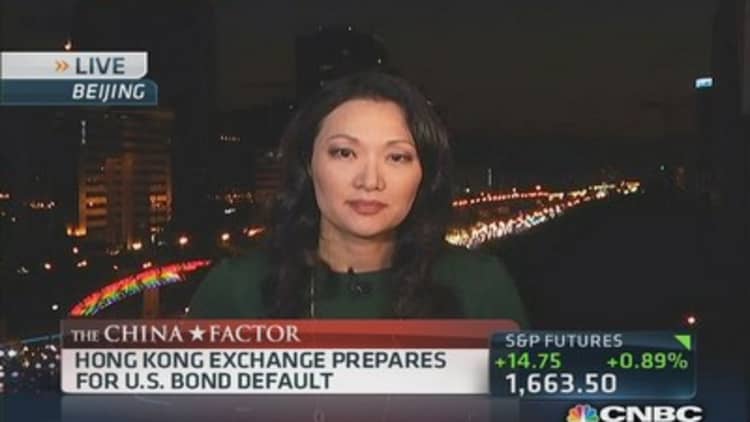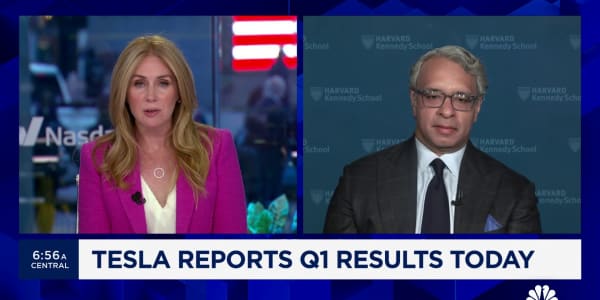
In the highest-level statement to date by China, Chinese Premier Li Keqiang has weighed in on the U.S. debt ceiling debate.
At a meeting on the sidelines of a summit in Asia, Premier Li told U.S. Secretary of State John Kerry that China was paying "great attention" to the political gridlock in Washington.
Chinese officials have voiced their concerns over the impasse, worried the stalemate could trigger a debt default.
Earlier this week, Zhu Guangyao, vice finance minister, warned that the "clock is ticking" in reference to the Oct. 17 deadline to lift the debt ceiling in the U.S. He urged the U.S. to "ensure the safety of Chinese investments."
(Read more: If US defaults, will China bail on Treasurys?)
According to U.S. data, China has $1.3 trillion in Treasurys, making the country the biggest foreign holder of U.S. debt.
State media has refrained from harsh criticism, suggesting the Chinese government is sensitive to public opinion about its investment decisions.
This week, frustrations have been voiced online—directed not at Washington but Beijing.
On social media in China, many are questioning why their government put so many of the nation's eggs in one basket.
(Read more: Yuan moves closer to global currency)
Zhaoge1982 asks, "What's wrong with China? You buy [America's] debt, they refuse to pay and what else can you do?"
Wanwan7 writes, "China shouldn't have purchased so much U.S. debt. You think you are in control, but you are actually the real victim."
So far, there are no signs China is selling its U.S. Treasurys.
However, some bond traders point to data out of Japan as an indication of market jitters due to the debate in D.C. Data released by Japan's Ministry of Finance show Japanese investors sold foreign bonds at record levels last week, at nearly $23 billion dollars.
(Read more: Boehner: Debt ceiling increase in return for talks)
Japanese institutions, such as pension funds and banks, have 40 percent of their debt holdings in U.S.-denominated bonds, including T-bills.
In addition, Hong Kong's exchange decided Thursday to value U.S. Treasurys lower, in the first sign in Asia of authorities preparing for the possibility of the U.S. government defaulting on its debt.
The Hong Kong Exchanges & Clearing (HKEx) said it's applying a discount or a "haircut" to the valuation of T-bills used as collateral against future trades.






